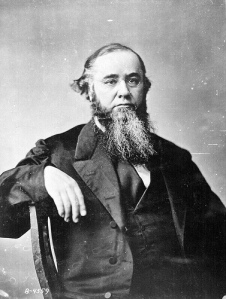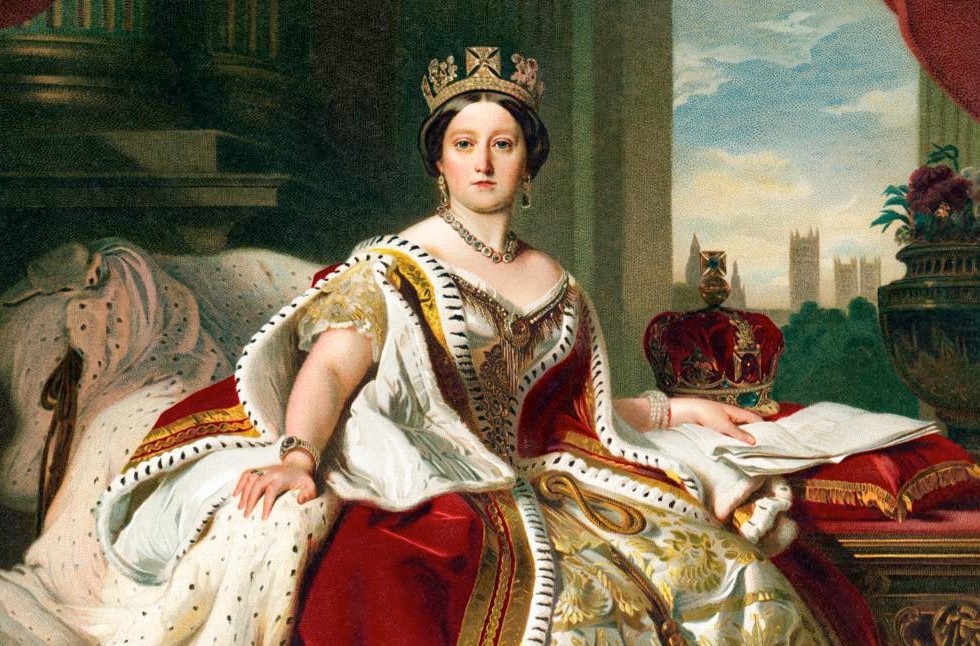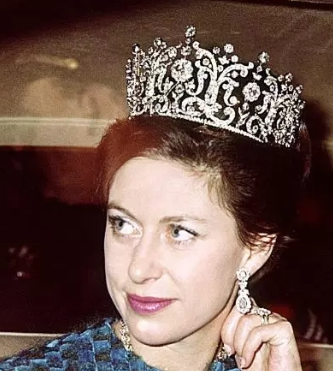
Lincoln's Secretary of War Edwin Stanton (1814-1869)
Much has been made of Democratic President Obama’s attempt to incorporate a Republican into his cabinet, a move that today’s political pundits liken to an overture made by the President Lincoln when, in 1862, he appointed Democrat Edwin Stanton as secretary of war in his Republican administration. Stanton was not just Lincoln’s political opponent, he was one of his most scathing critics, referring to the “imbecility” of the Lincoln administration’s handling of the Civil War. Not only that, he and Lincoln had met on another occasion – in a courtroom six years earlier – and Stanton had treated Lincoln with surly condescension.
During that case, Stanton headed a team of lawyers that included Lincoln that challenged Cyrus McCormack’s patent on the reaper. Nationally-renowned patent lawyer George Harding was another member of that same team. Harding never forgot the first time he caught sight of Abraham Lincoln arriving at the Burnet House in Cincinnati where the lawyers were lodged. Lincoln approached Harding and Stanton. Harding described Lincoln as a
“tall, rawly-boned, ungainly back woodsman, with coarse, ill-fitting clothing, his trousers hardly reaching his ankles, holding in his hands a blue cotton umbrella with a ball on the end of the handle.” (1)
Lincoln introduced himself to the two men, saying,
“Let’s go up in a gang.”
Both Stanton and Harding were shocked that this country bumpkin was part of their team. Stanton pulled Harding aside, whispering,
“Why did you bring that d____d long armed Ape here?”
Though the three of them spent a week together in trial and stayed at the same hotel, neither Harding nor Stanton asked Lincoln to join them for a meal or go with them to or from court. The brief Lincoln prepared for use in the trial was never even opened by Harding and Stanton. The judge presiding over the trial hosted a dinner for both teams of lawyers yet Lincoln was not invited.
Yet, in 1862, Lincoln set aside his ego and offered Stanton “the most powerful civilian post” – the post of secretary of war. Stanton accepted the position only to “help save the country.” While Stanton was hot-tempered and brusque, Lincoln recognized his brilliance and ability. Over the three years of their working relationship, Stanton and Lincoln grew close.
On the night of Lincoln’s assassination, Edwin Stanton was alerted. When he arrived at the Petersen boardinghouse across from Ford’s Theatre, he found that the president had been placed diagonally across a bed to accommodate his large frame. Lincoln was stripped of his shirt. “His large arms were of a size which one would scarce have expected from his spare appearance,” noted Stanton’s companion. Edwin Stanton and the other cabinet members except for Seward were present when President Lincoln was pronounced dead at 7:22 a.m. on April 15, 1865. Stanton’s tribute at that moment is still with us today.
“Now he belongs to the ages,” Stanton said of Lincoln.

Death Bed of Lincoln
Throughout that long night when the president had lingered between life and death, the task had fallen to Secretary of War Stanton to alert the generals. Coolly and with self-possession, Stanton dictated numerous dispatches. But when the president was pronounced dead, Stanton could bear his grief no longer. He could not stop the tears from flowing down his face. No one could control his grief that long night. One witness observed, “there was not a soul present that did not love the president.”
But “Stanton’s grief was uncontrollable,” recalled Horace Porter, “and,” some time later, “at the mention of Mr. Lincoln’s name, he would break down and weep bitterly.” (1) Stanton later wrote that he came to love Lincoln more than any other person outside of his immediate family.
(1) Goodwin, Doris Kearns. Team of Rivals. New York: Simon and Schuster, 2005.


















